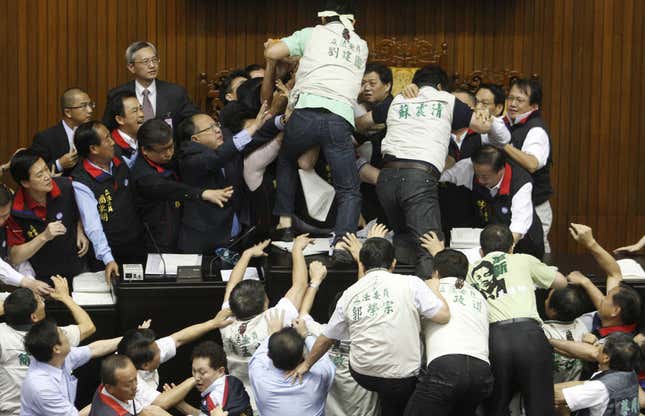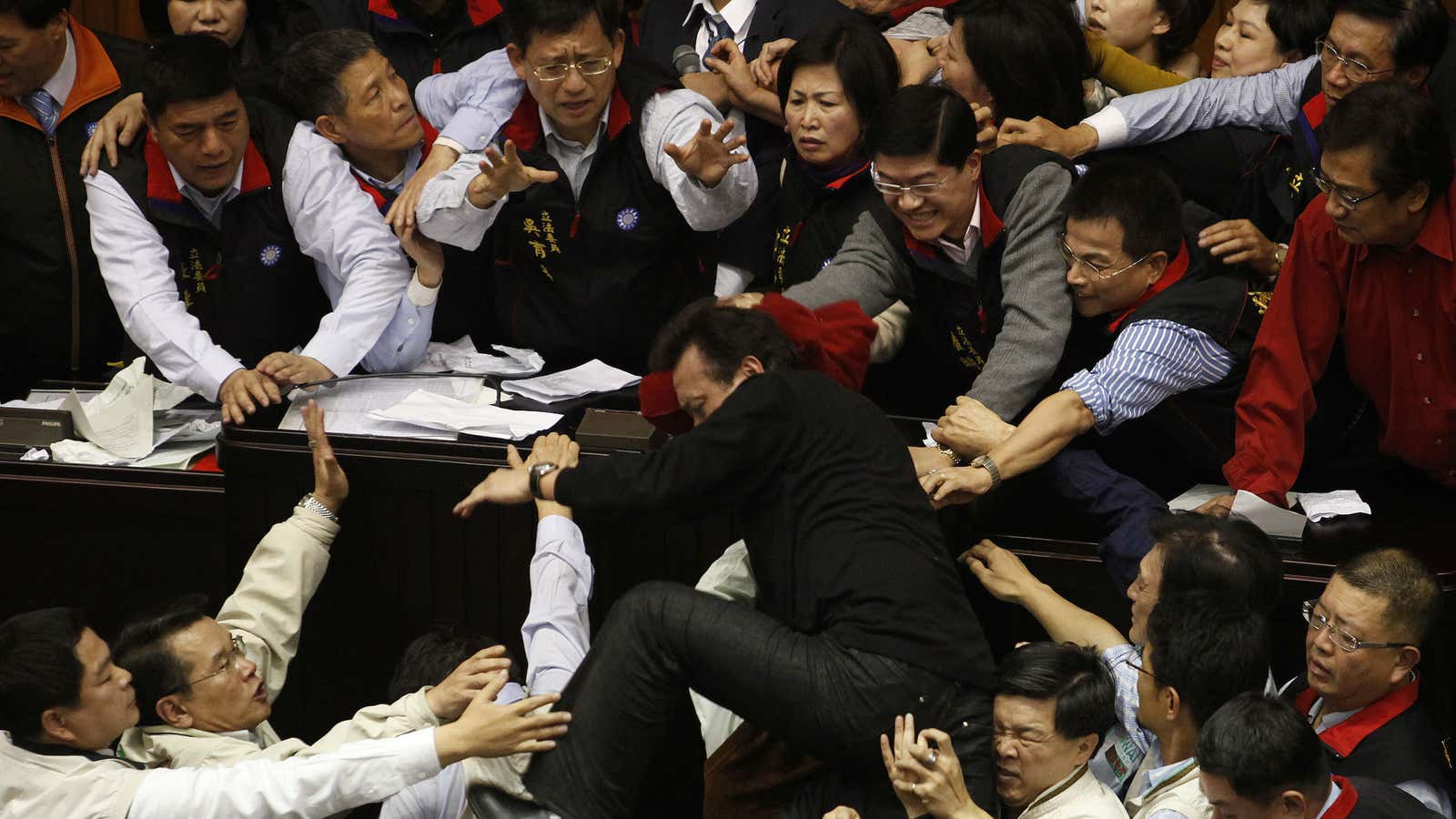A brawl broke out in Taiwan’s parliament yesterday. Members of Taiwan’s main political parties wrestled for the podium (video) as they fought over a tax bill; men and women shoved, yelled, and pulled each other’s hair. At least one lawmaker was bitten and another badly scratched. In a nearby room, Chinese dissident Chen Guangcheng, who has recently made headlines for his controversial departure from New York University, was praising Taiwan’s democracy.
Later, after hearing about the fight, Chen said such fighting was just a natural part of a young democracy’s growth. “It’s still better to have shoving in the legislature than to have tanks rolling in the streets,” he told (paywall) the Wall Street Journal, referring to Beijing’s violent military crackdown on protesters in 1989.

Taiwan’s political system is often cited as either a model for democratization in mainland China or proof that Chinese society is not somehow inherently unfit for representative government. After decades of one-party rule by the Kuomintang, the nationalists who were defeated by the communist forces on the mainland, Taiwan eased into direct elections in the late 1980s and 1990s. (Beijing refers to Taiwan as a “renegade province” and pledges to unify it with the mainland by force if necessary.)
Since then, Taiwan has developed one of the active citizenries in East Asia and the world. Voter turnout is consistently high, around 75% , with overseas Taiwanese often flying back to vote in presidential elections. And Taiwan’s media is among the freest in Asia. The cost, it seems, is that politicians can get a little out of hand. Taiwan’s scrappy Legislative Yuan often features on lists of the world’s best parliament brawls.
In the end, the ruling party passed its revision of a capital gains tax on stock transactions. (Now it only applies to transactions of over 1 billion New Taiwan dollars, or $33 million.) Not everyone was happy, but then again maybe this what democracy looks like.
